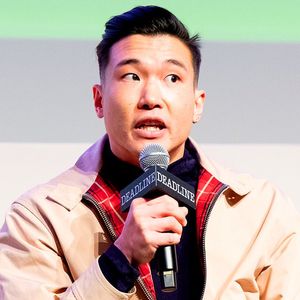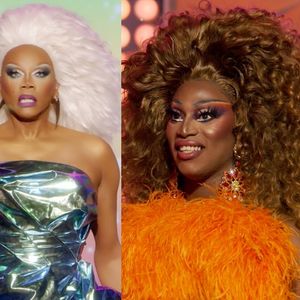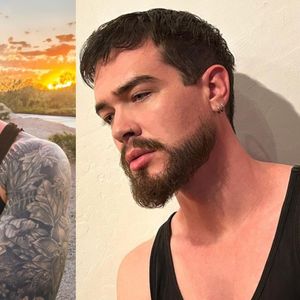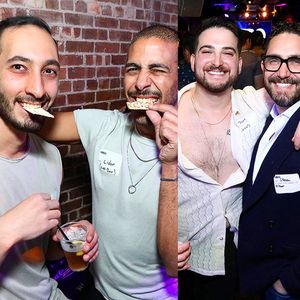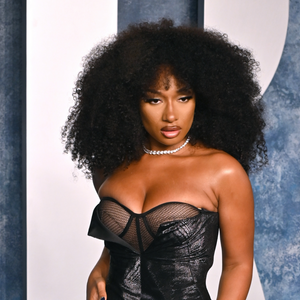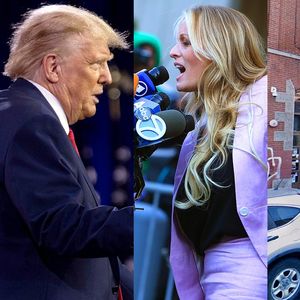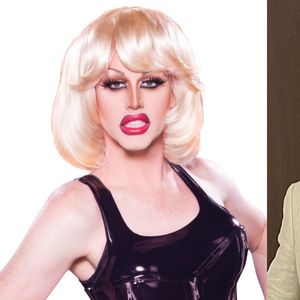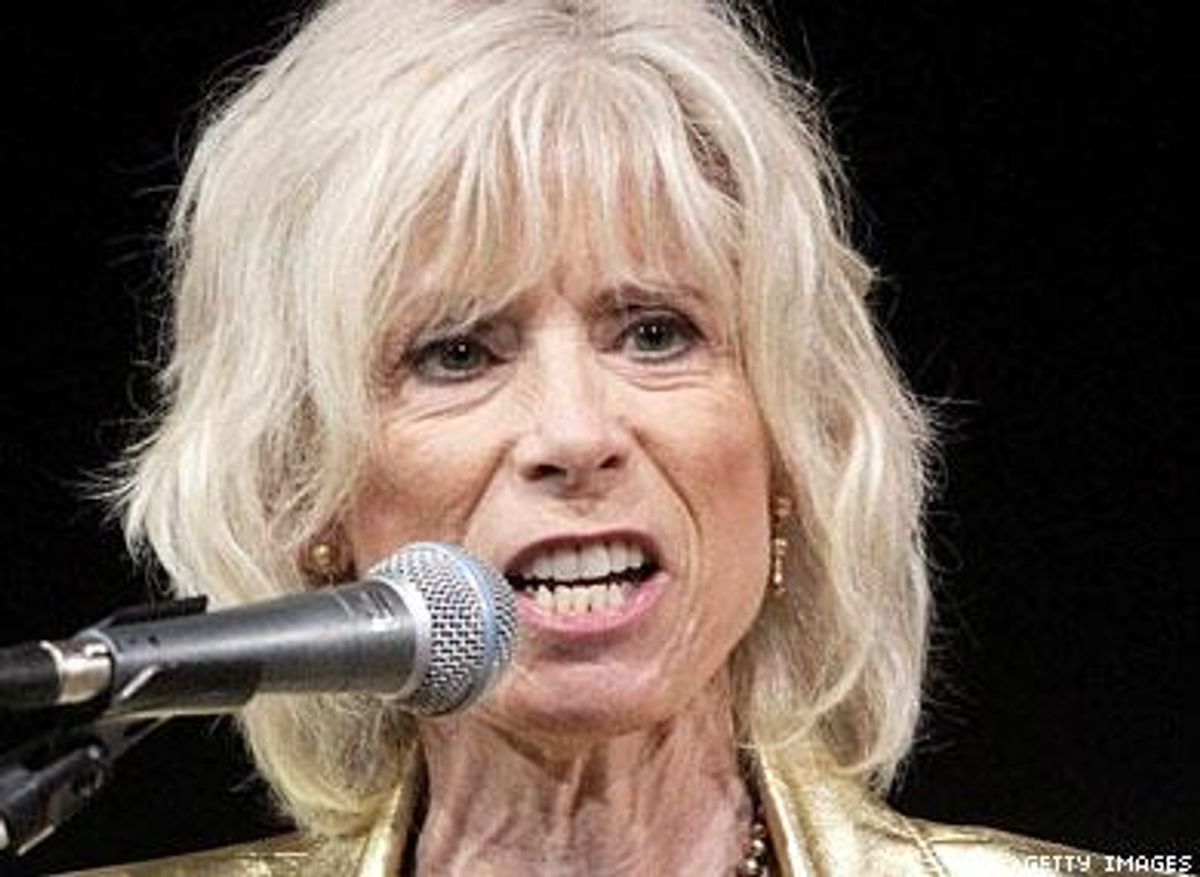
CONTACTStaffCAREER OPPORTUNITIESADVERTISE WITH USPRIVACY POLICYPRIVACY PREFERENCESTERMS OF USELEGAL NOTICE
© 2024 Pride Publishing Inc.
All Rights reserved
All Rights reserved
By continuing to use our site, you agree to our Private Policy and Terms of Use.
COMMENTARY: This week, the notorious "Dr." Laura said she is leaving her radio show after once again shooting her mouth off. But this time it was by using the n word and prompting a coalition of groups including Unity: Journalists of Color, the Women's Media Center, and the Gay and Lesbian Alliance Against Defamation to get her to apologize and retire from radio. For me, it was deja vu all over again.
From 2000 through 2001, it sometimes seemed like I had more of a relationship with Dr. Laura than with my girlfriend. As the community relations director at GLAAD, I spent more time than I care to recall talking about Dr. Laura, working on GLAAD's successful campaign to get her nationally syndicated TV show off the air, and traveling the country working with allied groups and meeting with the affiliate stations that had her show foisted upon them.
The differences between then and now have made me realize how much has changed -- and how much hasn't -- in our community over the past decade. The short story is that we did not have the Internet as an organizing tool (especially Twitter), but the greater issue is that the media and our community have come very far in changing attitudes, lowering the tolerance for public defamation of all kinds. We see it happen every day, and it happens fast and furious. Back then we had to convince people she was a bigot; today, not so much.
A little history here. At the time, GLAAD was growing fast, having worked on much larger-scale national issues and being at the center of media influence is a way it had never been before, particularly around framing news issues and creating national debate about specific issues of defamation. Fresh off the controversial but highly visible campaign to combat Eminem's hateful and violently homophobic lyrics, Laura Schlessinger's comments about gay people being "biological errors" and many other offensive and inaccurate rants, GLAAD swung into action. We began a campaign that would last over a year, leading to the creation of an online activist organization focused on direct action and aggressive tactics, StopDrLaura.com, that pushed GLAAD to be more aggressive (more on that soon) and an investment by GLAAD in a campaign that was nuanced, very costly, and, in the end, so effective it garnered a PR Week award for nonprofit campaign of the year.
At the same time, many things have not changed. Dr. Laura called m a "brownshirt" on her show (and boy, did that piss off my family members who grew up under Mussolini in Italy). This time around, she is using the same name-calling tactic with Media Matters and spouting the same tired, inaccurate comments about her First Amendment rights being violated. I said it then -- over and over on national television and in the community -- and I say it now: There is no First Amendment right to have a nationally syndicated talk show. If there is, I would like my show now, please. MSNBC would be nice. I would be fine following Rachel Maddow.
But seriously, when it all started we had a very specific way of doing things at GLAAD -- driven by the leadership -- that included actually meeting with "Dr." Laura (lucky Joan Garry, our executive director, did that and survived), difficult by necessary meetings with Paramount, and ramping up our grassroots efforts to reach out to as many as possible of the CBS (Paramount-owned) affiliates that would be airing the show as well as local community groups that wanted to work with us to get the show shut down before it could air.
As I prepared to hit the road, eventually traveling to over a dozen affiliate meetings in places as diverse as Baltimore, Cleveland, and others, working with local groups to conduct their own meetings, armed with information and arguments against the show, StopDrLaura.com hit the scene. In retrospect, it was a lesson learned for me as a person and an activist. I know there was tension with some of the GLAAD staff but I, for one, had a great deal of respect for the people involved and made lemons out of lemonade. In some of the affiliate meetings, I was even able to bring Robin Tyler, a Stop Dr. Laura leader, with me. As I said to her as we went to out Atlanta meeting: "Let's play it this way -- I'm the bad cop, you are the worse cop. If they think I'll be tough, wait until they get a load of you. And the protest is happening as a joint effort."
In Dallas, local activist John Selig, also a close personal friend, not only represented Stop Dr. Laura in our meeting but was instrumental in getting the local protest together. Anyone who puts me on the back of a pickup truck with a megaphone get points in my book. If all of this sounds familiar, take a look at the Get Equal folks and the establishment LGBT groups now. Like I said, deja vu all over again.
But there are a few very interesting things we can take from this most recent case.
One, in my affiliate meetings I had to schlepp a cassette recorder and hit "play" on a series of comments about LGBT people. We let her hang herself, and many an affiliate station manager was appalled and then willing to write to Paramount to express concern and privately tell us the station would relegate her to a 2 a.m. time slot.
Second, we had to wait until the TV show aired to target advertisers since Paramount refused to back down. Advertiser complaints went so well that all she had toward the end of the TV show was remnant advertising for things like Cleo the psychic and Madame Fifi's love plant. After a few incidents, the show finally was canceled. In today's world of Twitter and Facebook, things can and do happen at a faster pace, and many more people can get involved easily. The one thing that hasn't changed are her sorry-ass apologies, name-calling of groups that call her out on her bigotry, and her completely bizarre interpretation of the First Amendment.
What this latest round of our community's ongoing battle with her showed me is that we can and do learn from our mistakes. We do better working in coalition and harnessing technology and social media to make a difference much faster.
Finally, I personally learned a lot from the experience, from local groups that came to the affiliate meetings and showed me the power of personal storytelling; the impact this kind of defamation has; and most importantly, how we can have different tactics and strategies and work together even if we do not totally agree on every point. Stop Dr. Laura and GLAAD were not the best of bedfellows all the time, but the combination represented two kinds of activism that need to work together more often.
One final story. Many years later, I was sitting in the green room with Judy Shepard at the Today Show and, lo and behold, "Dr." Laura was on the set, shilling a for a new book. As I sat there trying to contain myself, I realized Schlessinger's husband was sitting on the couch across from us. I went to introduce myself and got a curt "I know who you are," which I took as a compliment. As Schlessinger's segment finished and we readied for Judy to go on, an intern came in to get her husband. I asked, "Is she was coming back to green room?" The intern said sotto voce, "no way, she knows that Mrs. Shepard is here."
That says it all for me about "Dr." Laura. She knows she is hurting people and does it anyway -- and does not have the guts to face people affected by the hate she spews. That she does it in the guise of "helping" and used a title for a PhD in physiology to do it knowingly tells me she knows she is a quack and a fraud.
Good riddance to the radio show. And I have full confidence that the folks at Media Matters and other groups will keep a close eye on her online presence and books to hold her accountable in those arenas as well.
Want more breaking equality news & trending entertainment stories?
Check out our NEW 24/7 streaming service: the Advocate Channel!
Download the Advocate Channel App for your mobile phone and your favorite streaming device!
From our Sponsors
Most Popular
Here Are Our 2024 Election Predictions. Will They Come True?
November 07 2023 1:46 PM
Meet all 37 of the queer women in this season's WNBA
April 17 2024 11:24 AM
17 Celebs Who Are Out & Proud of Their Trans & Nonbinary Kids
November 30 2023 10:41 AM
Here Are the 15 Most LGBTQ-Friendly Cities in the U.S.
November 01 2023 5:09 PM
Which State Is the Queerest? These Are the States With the Most LGBTQ+ People
December 11 2023 10:00 AM
These 27 Senate Hearing Room Gay Sex Jokes Are Truly Exquisite
December 17 2023 3:33 PM
10 Cheeky and Homoerotic Photos From Bob Mizer's Nude Films
November 18 2023 10:05 PM
42 Flaming Hot Photos From 2024's Australian Firefighters Calendar
November 10 2023 6:08 PM
These Are the 5 States With the Smallest Percentage of LGBTQ+ People
December 13 2023 9:15 AM
Here are the 15 gayest travel destinations in the world: report
March 26 2024 9:23 AM
Watch Now: The Daily
Trending stories from our video partner Advocate Channel.
For more videos and shows go to advocatechannel.com.
Trending stories from our video partner Advocate Channel.
For more videos and shows go to advocatechannel.com.
Latest Stories
Over 90% of trans youth live in states pushing anti-trans legislation: report
April 23 2024 10:08 PM
George Santos pulls out of New York congressional race
April 23 2024 7:04 PM
Biden will hammer Trump over abortion bans in Florida speech
April 23 2024 5:00 AM
Tristan Snell, who brought down Trump University, sees conviction in hush money case
April 22 2024 7:36 PM
Joe Biden admin marks Earth Day with major environmental initiatives
April 22 2024 4:18 PM
Texas Gov. Greg Abbott: 'We want to end' trans and gender nonconforming teachers
April 22 2024 4:13 PM
Nonbinary 17-year-old killed two years after being reported missing
April 22 2024 3:46 PM




























































